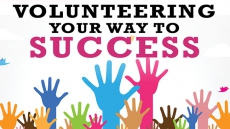It’s been years in the making but with the closure of all fare gates recently on April 4, 2016, Translink’s “new transit fare card for Metro Vancouver has arrived”...finally.
The long-awaited but perhaps not much-anticipated project began in 2007 when turnstiles were ordered to be installed at all Skytrain stations in an effort to reduce fare evasion and cut down on crime. Almost 10 years later, the Compass Card is finally fully operational.
So how has Translink fared now that their new fare system is in place?
“When they first brought the Compass Card in, I was against it,” says daily transit user, Tina Keefe. “I thought it was a waste of money and would be too confusing for people. Now that I’ve used it for a bit, I actually quite like it and find it easy to use. It saves me time as I can load it online or right at a station instead of having to find a retailer to buy a monthly pass.”
The convenience of online access, especially the automatic reload feature, has given the card a big boost in popularity. “We see consumers using it everyday and we see them drawing the benefits of it,” Translink’s spokesperson, Jennifer Morland, told DARPAN. “It’s really easy to use and people are enjoying the auto load. We are just recommending everyone get a Compass Card.”
The website dedicated solely to the Compass Card (www.compasscard.ca) touts several reasons to register your card, with benefits only available to those who sign up online:
- to protect the balance on your card if it is lost or stolen
- to store financial information for future purchases
- to set up automatic reloads or pass renewals
Use of the Compass Card also saves riders money as a one-way fare would normally cost users $2.75. With the card, only $2.10 is deducted from the loaded balance for the same trip while simultaneously eliminating the worry of having the correct amount of change.
Unfortunately, commuters still have complaints about the online process. “It would be amazing if I could load my Compass Card online with PayPal or through my debit,” says Alice Rose Stearn, despite praise for the system as a whole. Her comments were echoed by many other users who found the online options limiting.
Another downside to the cards is the potential for a two-hour delay when loading funds online. Users have run into countless problems boarding a bus or train before their funds have been processed, reporting up to 12-hour delays, making the online option counterproductive and inefficient.
“I don’t like it very much,” says an anonymous daily Translink customer. “You frequently need to tap more than once and that’s awful when you’re running to catch the bus. It gets very complicated keeping track of how long your fare has been used for; it’s so easy with the ticket showing you the time.”
Glitches with card errors at gates and online inaccuracies have also been cause for concern but should improve as the system continues to evolve.
Perhaps the biggest complaint coming from commuters is the lack of turnstiles for entering and exiting busy Skytrain stations. It’s causing delays and a whole lot of headache at times when users are rushing to make their connection or get to work on time.
“Our stations just weren’t built with the Compass in mind,” says Katie Lee, who compared the system to other major cities with similar cards but a better infrastructure for fare gates. “The reason these systems work in other cities is because they’ve installed enough gates for the amount of people using trains on a daily basis. There’s already a huge mess of people coming off the trains and trying to go up on their single escalator. Now there’s even more of a backup of people trying to tap in and out.” And with gates not opening quickly or machines taking too long to register a “tap,” crowds are constantly building.
While many commuters find Translink’s newest endeavour to be poorly executed and often confusing, the transit authority realizes the Compass Card is not without challenges. “One of the things we were working on with customers was that customers were tapping in but they weren’t tapping out of this system,” explains Morland. “That meant they were paying three zones instead of one zone, but now with the gates closing, you will have to tap out to get out of stations. That will make sure the customers are charged the correct fare.”
Change isn’t always easy, to have on hand or to adapt to, and the Lower Mainland’s transit users seem to be taking the updates in stride, albeit a slower stride than they’d like. The benefits don’t quite outweigh the challenges yet but, with the exception of space at the gates, users are hopeful the Compass Card has Translink heading in the right direction.




